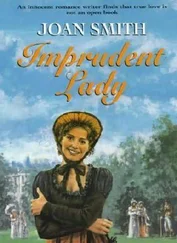“If that ingenious husband of mine has invented a means of turning apples to gold, it is a pity the secret died with him. Bobbie calls them the pixie trees, and says they are more valuable than all the others put together. Is it usual for a smaller tree to have a better yield?”
“No, it is some nonsense they’ve been filling her head with. I wouldn’t encourage her to believe that ignorant sort of superstition.”
Again the widow bristled. “I have not been filling her head with superstition, milord. It is Mrs. Bristcombe. I am trying to discourage the idea of pixies.”
“Sorry again, cousin. Why is it I invariably raise your hackles?-and I am fairly walking on eggs, too. You are very sensitive, I think?”
“Perhaps it is rather that you are insensitive,” she replied, and felt she had gained a point, though it was a somewhat arbitrary charge.
“Let us hope that under your tutelage I shall become more finely attuned to your sensibilities, ma’am. Jane is kind enough to tell me I am a biddable fellow, and we are all, we bachelors, more amenable to being led by a pretty young lady than anyone else.”
Delsie’s eyes widened at this leading statement, but before she could give voice to any objection, he spoke on calmly. “No, don’t try to quell me with one of your schoolteacher’s scowls. I have been out of the schoolroom a good many years. And never had such a delightful tutor when I was in it either,” he finished with a little suggestion of a smile. Then he immediately arose. “I have a distinct sensation I should take my leave, before the teacher brings out her ruler to slap my knuckles.”
As he entered the hallway, Bristcombe lounged in through the front door, wearing shabby clothing and with his face not shaved.
“Ah, the mysterious vanishing butler!” deVigne said ironically, raking the man from head to toe, his eyes lingering on the incipient beard, the muddied boots. “Mrs. Grayshott has been wondering where you keep yourself these days, Bristcombe. When a lady pays a good sum for a servant’s time, she expects him to perform his duties. You do not appear to serve as a butler in this establishment. At least one hopes it was not your intention to show me the door in that getup. From the jungle at the front door it is clear you have not turned gardener. May one inquire how you do manage to fill your days?”
“I’ve been getting wood,” he said, though he carried no wood with him.
“Mrs. Grayshott will be happy to hear it. While we catch a glimpse of you, there are a few points that want mentioning. You will leave lights burning for Mrs. Grayshott when she is out in the evenings, and remain up and about till she is safely returned, after which you will lock up carefully. Do you understand?” he asked, in a polite tone that carried an unmistakable threat.
“Yes, milord,” Bristcombe mumbled sulkily.
“Good. Otherwise it will be necessary to find servants who know their duties.”
DeVigne was not chided by so much as a glance for his interference on this occasion. Delsie was happy to have the unpleasant chore of a scolding done for her. DeVigne took his leave, and Bristcombe came into the saloon after Mrs. Grayshott.
“Begging your pardon, Mrs. Grayshott, but me and the missus would like to go visiting my folks tomorrow. Just five miles down the road past the village. Sunday was our regular day off when the master was alive.”
“By all means, go ahead.” And what a relief to be rid of you, she added to herself.
“We’ll go after your luncheon and be back by dark, or soon after. I’ll be here to lock up for the night, and leave the lights on for you and all,” he added in quite a humble tone.
She was half pleased and half angered that the baron’s brief lecture to Bristcombe had proved so efficacious, when she had been wrangling to less avail with the wife for two days. She took her purchases upstairs and spent an agreeable hour going through fashion books choosing patterns for her new gowns. Next she went to the escritoire and wrote the notes to the village girls she wished to come to her. She would send them into the village with a servant. The recipients would not appreciate having to frank them. This done, she began sorting through the desk to discard those items belonging to her predecessor that were now useless.
She debated for five minutes whether to keep or discard the printed stationery bearing the name Mrs. Grayshott. Her inclination was to throw it into the grate and burn it up as fast as she could, so much did she dislike the name, but in the end thrift overcame inclination, and she kept it for rough notes and lists. As she reassembled the drawers to her own convenience, she recalled Bobbie mentioning a secret panel at the back of one. Worked with a button, she had said. She examined drawers for buttons, and found, cleverly concealed on the underside of the top drawer, a little button. When she pushed it, a soft click was heard, and the back panel of the drawer fell forward to reveal another canvas bag. “Oh, no!” she moaned softly to herself, pulling it out. No counting was necessary. She was becoming very familiar with the weight of a hundred gold guineas.
News of her latest discovery was brought to her relatives as soon as she was seated in Lady Jane’s cozy saloon with a glass of sherry in her hand that evening. Jane was enthralled, and confirmed on the spot she would go to the Cottage the very next day to help her conduct a thorough search, from attics to cellars.
“From attic to kitchens,” Delsie corrected. “Any gold stashed in the cellars may remain there.”
“My dear, that is the likeliest place to have put it,” Jane pointed out.
“I saw black beetles in the kitchen. There would certainly be rats in the cellars. I shan’t go near them,” she stated firmly.
“I have been looking for an excuse to get into Andrew’s cellars,” deVigne claimed. “If he has a hogshead of that brandy you like to throw on the fire, I shall take it as my fee for looking for gold.”
“Agreed!” Mrs. Grayshott declared. “And it was you who threw it on the fire,” she added.
“Brandy will not put out a fire,” Sir Harold informed them.
His spouse repressed the urge to tell him to shut up, and said instead, “It is odd finding one of the bags in Louise’s desk. Do you think she put it there? That Andrew has been acting this way for so long?”
‘There is no way we shall discover it now,” her nephew replied.
“Is it possible he had more money that you knew?” Delsie asked. “You mentioned he lost a good deal in poor investments, but might he not have kept some cash on hand, in the house?”
“I can’t think so. He was eager to get his hands on Louise’s settlement in cash, and told me at the time he was in tight waters financially. That was three years ago, more or less, for he went through his roll very quickly after Louise died. Went on a big binge of selling everything. In fact, he sold his own yacht to settle some accounts. You recall he had kept the Robert-Lou for his own use, Jane?” deVigne asked.
“Yes. When he sold out to Blewes, he kept the smallest ship and fitted it up for a pleasure craft. Too big, of course, and I don’t believe he had it out above two or three times. It was foolish to keep it. Well, it required a crew of six or seven men, and Andrew himself never was much of a sailor. It was a sentimental gesture, keeping it and naming it for his wife and daughter. He sold it to some fellow in Merton, I think.”
“His own uncle took it off his hands. Old Clancy it is who has the Robert-Lou,” Sir Harold told them.
“I wish I could remember…” Delsie said, staring into the leaping flames. Everyone looked at her to hear an explanation of this pregnant statement. She went on: “During those few very brief conversations I had with Mr. Grayshott, just before and after the ceremony, he talked about money.”
Читать дальше












